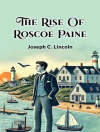In R. D. Blackmore’s 'The Maid of Sker, ’ readers are immersed in a richly woven narrative set against the backdrop of 17th-century Wales. The novel masterfully combines elements of romance, adventure, and local folklore, reflecting Blackmore’s lyrical prose and deep appreciation for regional dialects. It unfolds the poignant tale of the courageous and spirited Anne Willett, navigating the trials of love and loyalty amidst the looming specter of tyranny and personal sacrifice, all while exploring the intricate relationship between humanity and nature, a theme prevalent in Blackmore’s oeuvre. R. D. Blackmore, best known for his iconic novel 'Lorna Doone, ’ was a quintessential Victorian author whose works often drew from his Devonshire roots and experiences as a landowner and naturalist. His deep affinity for the English countryside and its traditions undoubtedly shaped his depiction of Welsh life and the moral dilemmas faced by his characters in 'The Maid of Sker.’ The novel reflects Blackmore’s exploration of human emotions and social constraints, indicative of the era’s literary trends. For those captivated by the intertwining of romance and historical detail, 'The Maid of Sker’ is a compelling read that invites readers to delve into a landscape rich with cultural heritage and emotional depth. This book not only entertains but also provokes thought about the nature of love and courage, making it a valuable addition to the canon of classic literature.
O autorze
Richard Doddridge Blackmore (1825–1900), widely recognized as R. D. Blackmore, was an eminent English novelist of the Victorian era. His writing career flourished in the latter half of the 19th century, with a predominant focus on romantic and historical fiction. Blackmore’s prose was characterized by its vivid descriptions of landscape and a nostalgic affection for rural life, often reflecting his personal admiration for nature. One of Blackmore’s notable novels, 'The Maid of Sker’ (1872), presents itself as a masterful blend of romance and gothic elements, setting it amidst the stark backdrop of the Welsh coast. Though 'The Maid of Sker’ enjoys critical acclaim, Blackmore’s acclaim largely rests on his celebrated work 'Lorna Doone’ (1869), a romance set in Exmoor and renowned for its portrayal of love amidst tumultuous social and historical contexts. Blackmore’s literary style combined the adventurous spirit of the time with the psychological depth, creating narratives that were both accessible and thought-provoking. He was not prolific in comparison to some of his contemporaries, but his substantial contribution to the literary landscape of his time is marked by the enduring popularity of his work and his influence on the pastoral literary tradition.












